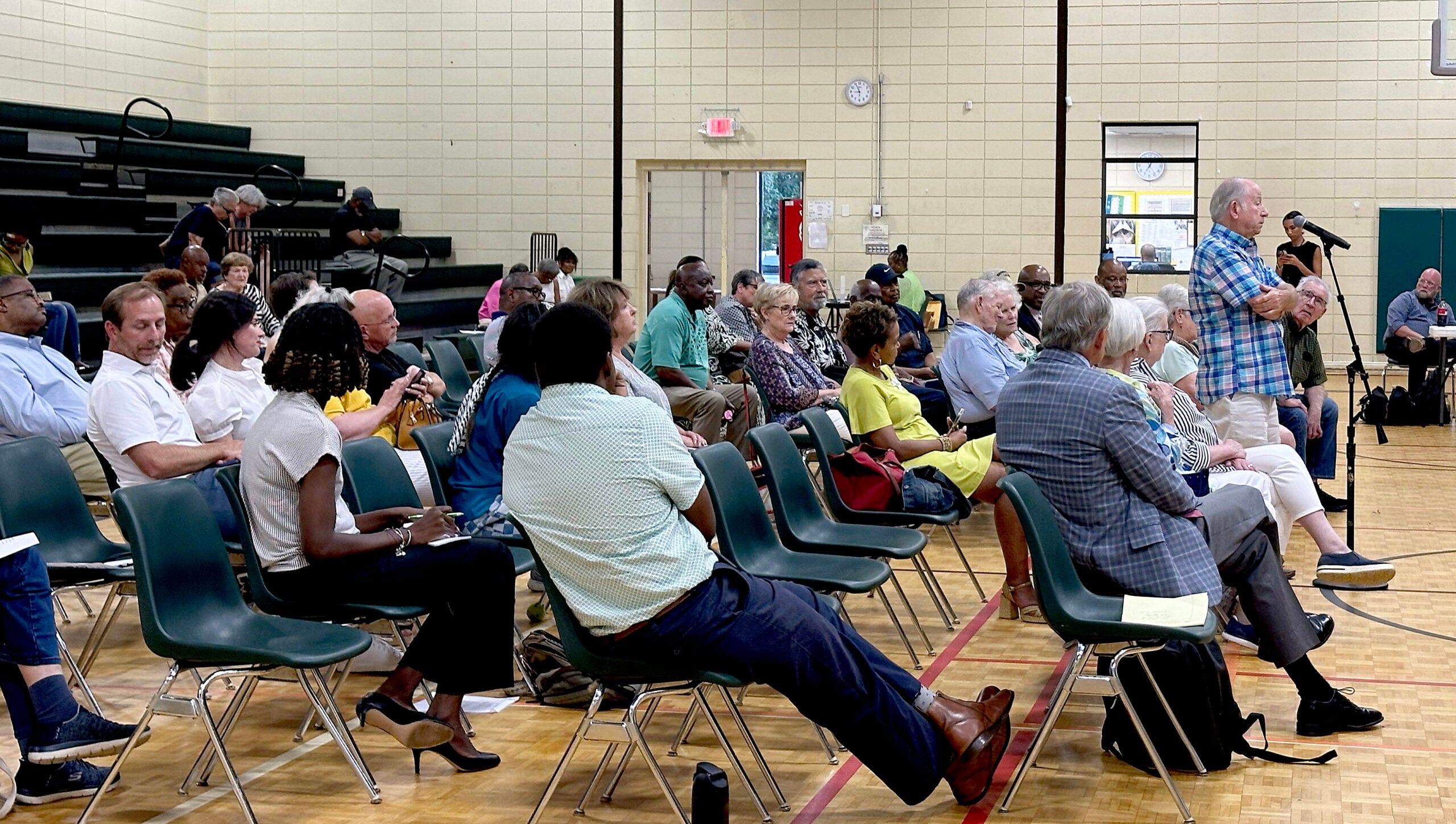Distrust — and dysfunction — were two themes raised at a Monday public hearing on Augusta’s effort to revise the city charter.
Held at Warren Road Community Center, the hearing drew about 55 people, with several from a group that has attended and comments at most Charter Review Committee sessions. The committee has considered different forms of government and a few other matters, but has made no recommendations.
Former Commissioner Jerry Brigham – who said he’d worked alongside so-called “strong mayors” – said he opposes that model. “They tend to not pay attention to the rest of the elected officials,” he said.
Brigham said he preferred all 10 commissioners to represent individual districts, for a “fairer representation of the entire community,” and warned the current system of two super districts makes elections pricier.
Under Augusta’s current system, the mayor is largely a figurehead, while real authority lies with the 10-member Augusta Commission.
Financial analyst Robert Wynn, said serving as president of Augusta Tomorrow and looking at how the city runs it was clear to him “we have a dysfunctional government.” For evidence, look at conditions at the Riverwalk, he said.
“We don’t have a functional system where that accountability exists,” Wynn said.
Oliver Page, deputy director of Augusta Transit, asked which government form “allowed jurisdictions to be forward thinking,” adding that Augusta’s public transit system lags for behind, even among some smaller cities.
Rex Facer, a consultant from the University of Georgia who is helping the committee, responded that several government structures “function well,” while those led by managers tend to be more efficient. “What matters most is a government that has a vision,” he said.
Several speakers raised the issue of “race relations” as a stumbling block to Augusta’s progress, including the Rev. James Williams and former Commissioner Ben Hasan.
Without the community addressing the concerns, “I don’t think there’s anything they can put together that will get us where we need to go,” Hasan said.
In addition, a decision for the committee to bypass the commission and send recommendations directly to the legislature has created a serious trust issue, he said.
Rev. Anthony Booker, president of the 67-member Baptist Ministers Conference of Augusta, threatened to lead the group to oppose “whatever y’all put up,” unless the trust issues are resolved.
His statement angered Brigham, who said, “this government was built on mistrust,” but that “it’s not going to change with this attitude.”
Committee member Steve Foushee later added, “I would encourage our Baptist ministers to preach the gospel.”
Mercer University student and former city of Augusta intern Alexander Marshall said the problem is Augusta’s lack of a chief executive and a lack of diversity. The government is run by “primarily Black directors,” he said.
School board trustee Monique Braswell asked the committee why it was not holding public hearings in all 10 districts, to accommodate seniors and others who can’t get to the chosen sites in Hephzibah, downtown or west Augusta.
Local businessman James Riles said Augusta had a “strong mayor” before. Augusta’s last one “broke the city,” he said. Additionally, strong mayors are more prone to corruption, Riles said.
Former Commissioner Moses Todd said a good question to ask would be “which form of government has the least malfeasance.” He received no answer.
Committee member Lonnie Wimberly said distrust is the prevailing “word on the street” and is not helped by the decision to turn the recommendations over to the legislature.
“if you answer me one time with a false statement, that is called ‘your credibility is gone,’” Wimberly said.
Committee member Clint Bryant said the committee’s job is to “listen,” and that “since we are here, let us do the best job we can possibly do.”
The committee hosts a third its final scheduled hearing from 6-8 p.m. Tuesday at Diamond Lakes Regional Park, 103 Diamond Lakes Way.











